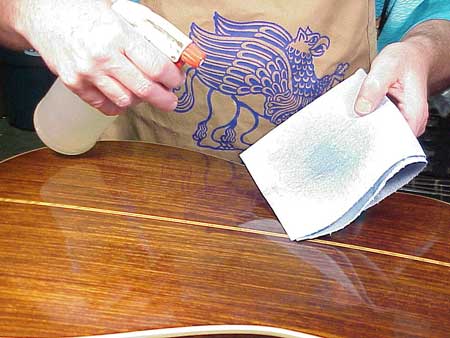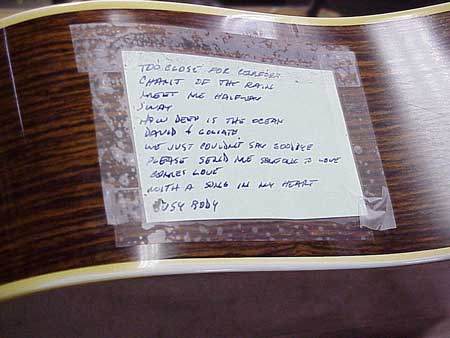Clean up your Axe
© Frank Ford, 3/21/00; Photos by FF
You can't play your guitar without touching it. And you can't touch it without getting it at least a little bit dirty. If you take a bit of time to do some "preventive" cleaning each time you play, you can avoid a number of future problems.
In this short article, I'll deal with the easy stuff first, and proceed to more drastic cleaning and polishing as I go along.
No doubt about it, a soft cotton cloth is the best for polishing and cleaning guitars. You can get a flannel "guitar polishing cloth" from your local music store and rest assured that it is safe to use on any instrument:
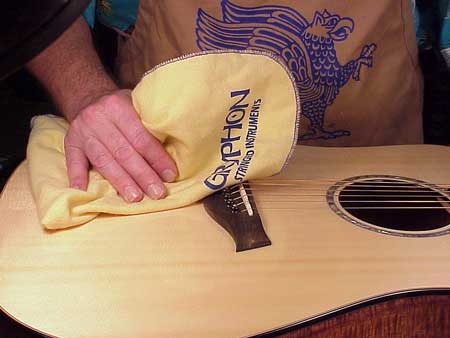
An old 100% cotton T-shirt makes a great guitar wiping tool, and the more it has been laundered the more free it is from lint:

Best to avoid wiping with the printed area of T-shirts. Some of the silkscreen paints are thick enough to scratch a delicate finish.
Paper towels can actually scratch a fine guitar's finish, especially if it's lacquer or shellac French polish. If you'd like to use a disposable cloth, then get the nonwoven "shop towels" that come on a roll or in a box. They cost about three times as much as paper towels, but they don't break down in water, and they won't scratch:
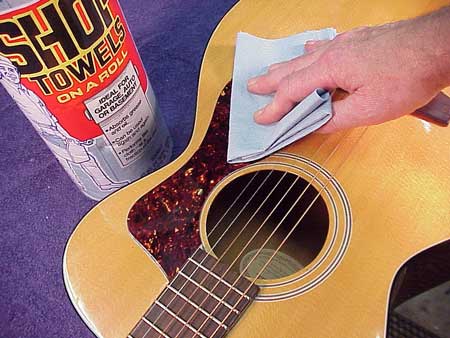
As you wipe down the entire guitar after each time you play it, you actually do a bit of polishing, too. In fact, simply wiping with a cotton cloth will keep a guitar looking like new. Some areas, such as the face under the strings, may seem a bit hard to reach, but it's not that difficult if you simply shove the wiping cloth under there to take off the surface dust.
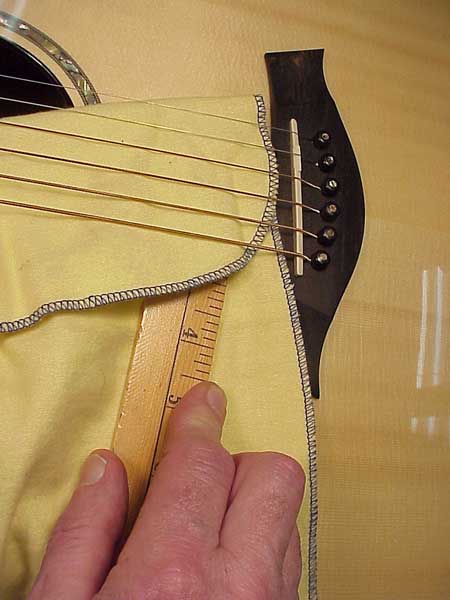
I was recently contacted by Ken Goodman, a friendly guitarist who is actually in the industrial wiper business. If you'd like to talk specifics about this kind of product, give him a shout: ken@goodmanwiper.com
Speaking of strings, you can greatly extend the tonal life of strings by wiping vigorously each time you play. Some players even wipe their strings down from time to time during a playing session. Simply grip the string through the cloth, and scrub up and down the length of each string:
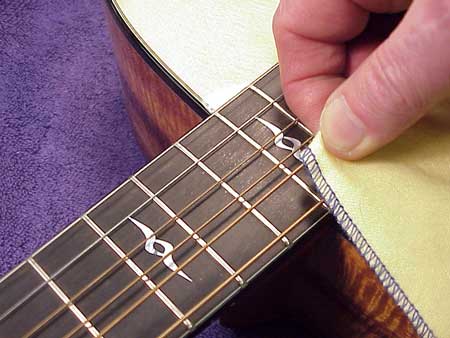
You can also keep the fingerboard relatively clean by wiping right over the board, strings and all.
As you wipe down the finish, particularly on the top and back, you may notice some spots or areas that don't come perfectly clean. Fingerprints, smudges, and other dirt may respond well to a trace of moisture. "Huff" some warm breath on the surface the way you would if you were about to wipe the inside of your car's windshield. Just that little bit of condensation may be enough moisture to allow you to wipe the offending area clean.
